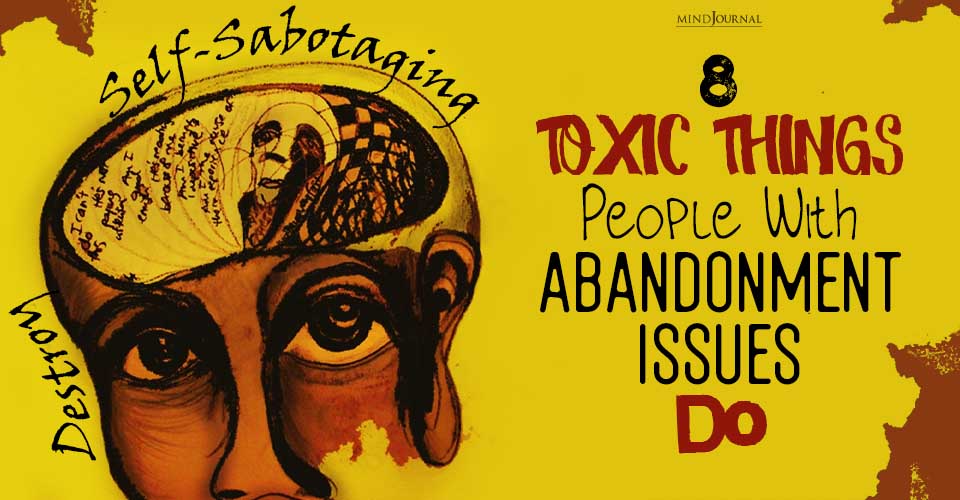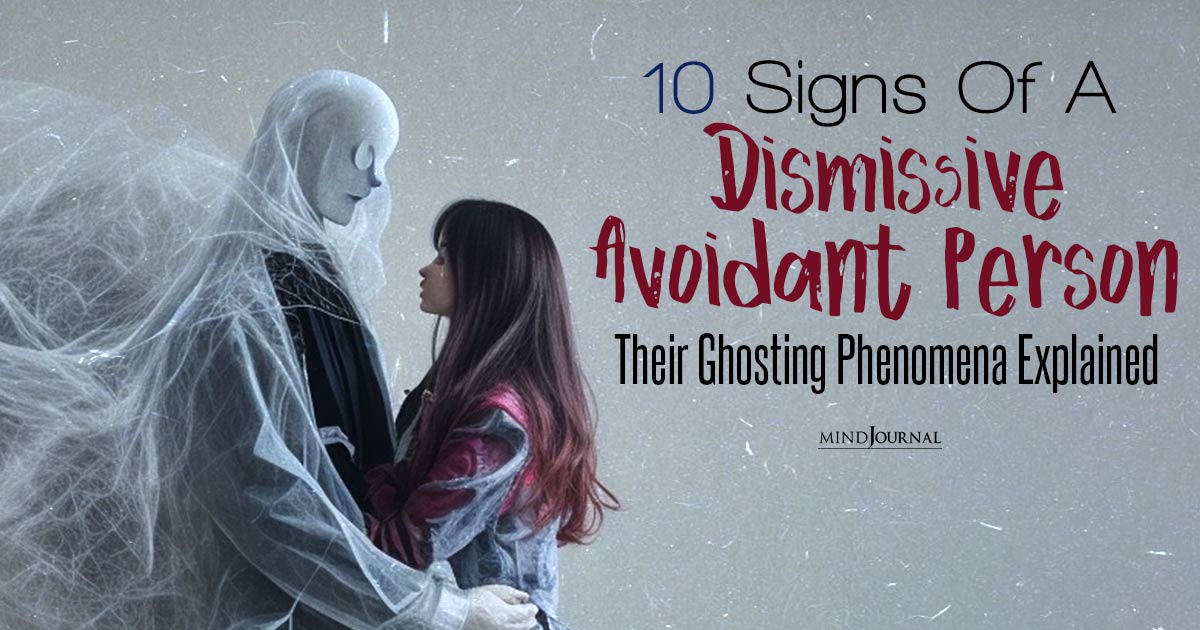A healthy relationship between couples is based on the way they develop a connection through trust, mutual respect, honesty, and good communication. A great or bad relationship simply doesn’t happen overnight; it all depends on the kind of connection your relationship has. Any relationship that has a strong connection between the two partners, will be able to overcome every hiccup that comes their way.
You have three relationship connection choices that can make your partnership amazing or lonely.
“Feed and clothe a human infant but deprive him of emotional contact [and] he will die.” – A General Theory of Love
Matt and Evalin fight about everything under the sun. Evalin tells Matt, “you’re a slob. It’s not hard to pick up your clothes off the floor and put it in the hamper.” Matt responds, “you shouldn’t be talking. You’re a space cadet who always forgets snacks I need for work when you’re at the grocery store.”
What is this couple really fighting about? Like most couples, they are fighting about nothing. The content of their fight doesn’t matter as much as what’s underneath their words. They are fighting due to the emotional disconnection that creates a chasm of misunderstanding between them.
Conflict is the inflammation of a lack of emotional connection from a partner. Research confirms that the erosion of a relationship begins with the absence of emotional support.
Attachment: The Heart of Connection
Thousands of studies in developmental psychology with a child and a mother, research on attachment, and insights from neuroscience highlight the fact that in relationships, we are truly interdependent.
All of us are born helpless and dependent, and the only healthy way to embrace this vulnerability is to reach out and embrace each other. Attachment theory states that our primary relationships with our parents create a model for how our adult relationships should be. But some of us had parents who neglected us, criticized us, or were unpredictably available. As a result, we love and accept love the way we experience love growing up.
- If your parents were emotionally available, you developed a secure way of relating to others. You feel comfortable being close or apart from your partner and can express what you need in a relationship.
- If your parents were unpredictably available, you developed an anxious way of relating to others, and often blame yourself for your partner’s unavailability. To re-establish an emotional connection, you might make demands of your romantic partner or text/call excessively. This kind of behavior can cause your partner to do the very thing you’re scared they’ll do: withdraw.
- If your parents neglected you, you developed the belief that you had to fend for yourself. You don’t like getting emotionally close with your romantic partner for long. You often numb yourself and withdraw, leaving you with a track record of failed relationships.
Related: 21 Simple Ways To Build Emotional Connection With Someone
When partners are emotionally available and are able to discuss both the good and bad things in life, the couple’s attachment bond creates a safe haven that makes both partners feel safe, calm, and emotionally connected. This loving relationship gives us a secure base to expand our sense of self and increase our confidence.
When our partners are emotionally unavailable or verbally attack us, our hearts begin to panic. Our thoughts make movies of our partner abandoning or rejecting us. As a result, our attachment alarm goes off and we either demand our partner to meet our needs or withdraw from the relationship, putting the bond into a toxic tailspin of panic and insecurity.
The Attachment Radar
When we become attached to our partners, we develop an attachment radar that determines whether our partner is emotionally available and connected to us.
The way we determine if our partner is connected to us is through what Dr. Gottman calls “bids” for connection. A bid can seem as meaningless as saying “gosh it’s raining so hard today,” to as meaningful as “I need you.” A bid can also be a gesture such as a wink, a squeeze of the hand, or offering to carry something.
Verbal bids for connection:
- “While you’re up, could you grab the salsa, please?”
- “You’re lookin’ sexy this morning. I can’t wait to see you tonight!”
- “I blew the presentation I had today.”
Nonverbal bids for connection:
- Affectionate touch – a hug, a gentle neck rub, a squeeze of the hand
- Facial expressions – winking, smiling, sticking out tongue in a playful way
- Kind gestures – opening a door, offering to carry something
A bid for connection is anything that invites your partner to respond to you. We do this constantly. What a bid is really asking is “can I trust you?” “Will you be there for me?” “Do you value me?” In Matt and Evalin’s conflicts, this is the underlying message they are fighting over.
Movies and television have distorted the concepts of romance and what makes a relationship passionate. In the real world, love is kept alive in the moments that let your partner know they are valued during the daily grind of everyday life.

The Three Connection Choices
Every bid in a relationship creates a connection moment. When one partner makes a bid for connection, the other’s response is to either connect or to not connect.
After studying 3,000 couples, Dr. Gottman has uncovered that we respond in three ways. We either turn towards our partner’s bid and build our relationship, or we turn away, or we turn against our partners and sever the emotional connection.
Bid examples:
- “Did you notice the sailboat? It was beautiful!”
- “I have a big presentation that could get me promoted today. Wish me luck.”
- “I wish you would pick up your clothes off the floor.”
1. Turning Towards Responses.
- “I didn’t notice it. Tell me what made it so beautiful?”
- “Good luck love. I know you’re going to do great. You’ve worked really hard on the presentation.”
- “That probably grosses you out. I’ll pick it up now. Sorry.”
When our partners make a bid, our first option is to turn towards them and build our emotional bond. A tendency to turn toward your partner is the foundation of trust, passion, and great sex life.
As stupid as it sounds, romance is enhanced in the supermarket when your partner asks you, “do we have ketchup at home?” and you answer, “I’m not sure. Let me grab some just in case,” rather than shrugging off their question. The romance grows when you send your partner a loving text because you know they’re having a rough day.
In these brief moments, partners are connecting. They are attuning to each other by turning towards each other. The culprit of disconnection is often a deficit in attunement. Attunement is the desire and willingness to understand and respect your partner’s inner world. Couples who attune to each other build mutual trust. Those who don’t are likely to lose their way.
In Dr. Gottman’s love lab, he noticed that couples who stay together turn toward their partner’s bids an average of 86% of the time. He also noticed that those who divorced turned towards the bids an average of 33%. It’s insightful to know that most arguments between couples in both groups were not about specific topics such as money or sex. They were the result of failed bids for connection: turning against and turning away.
2. Turning Against Responses.
The second option we have is turning against our partner’s bids for connection. When we turn against our partner, we disconnect with them by responding defensively. This shuts down the emotional connection.
- “Did you not notice that I’m reading?”
- “Did you forgot about my big meeting earlier this week? So typical.”
- “Why? You never get my snacks.”
The more negative a couple’s interactions become, the less productive their attempts to communicate are, and the more partners shut down from connecting emotionally. Being rejected by the one you love is physical and emotional torture. Eventually, fights turn into silence, and partners go from soulmates to cellmates. They become locked in the prison of an emotionally disconnected relationship.
Related: 5 Great Ways To Be Emotionally Available To Her As A Man
3. Turning Away Responses.
The third option is the worst of all. Emotional starvation is gut-wrenching. Feeling emotionally neglected creates pain and panic. At least you get a response with option two, but when your partner turns away, you feel as if your partner couldn’t care less about what you are feeling. Neglect murders love.
- Pretending to read the newspaper.
- Picks up phone to read emails.
- Leaves the room.
When the person you have entrusted with your deepest vulnerabilities is unavailable or unresponsive to a deep-seated need, the result is anger, panic, and loneliness. When our partners don’t turn towards our bids for connection, we are wired to protest the emotional connection. Our first instinct is to reconnect with our partners and soothe our deepest fears.
Protesting Emotional Disconnection
When our partners turn toward our bids for connection, we recognize that they are responsive to us and are emotionally connected to us. As a result, our attachment anxiety is soothed, because we feel safe and secure in our bond. According to the dependency paradox, the safe haven of a secure attachment gives us the security to focus our attention outside of the relationship.
When our partners turn away or against our bids for connection, we feel that they are unresponsive to our needs. As a result, our attachment alarm goes off in the shape of insecurity, and we unconsciously utilize protest behavior to try and reconnect with our partners or disconnect more to protect ourselves:
1. We become demanding and clingy in hopes of receiving comfort and reassurance from our partners. Anxious partners typically use indirect cries for help or demand something from their partner which feels very negative to their partner. The motivation under this behavior is to see if our partner is there for us and wants to be with us.
2. We withdraw from the relationship to create space so we can protect ourselves from being rejected and calm down. We do this to numb our overwhelming emotions and so we can get them under control. This also prevents us from becoming engulfed in the relationship with our partners, which may have been devastating in prior relationships.
Protest behavior is an indicator that your primal attachment needs are not being met.
Want to know more about how you can have a strong relationship connection with your partner? Check this video out below:
Examples of Protest Behavior
1. Anxious attachment and excessive attempts to reestablish contact: Calling or texting multiple times in a row. Waiting for a phone call. Loitering by your partner’s workplace in hopes of running into him or her.
2. Withdrawing: Going emotionally numb. Leaving. Turning your back. Talking on the phone and ignoring your partner.
3. Keeping Score: Paying attention to how long it took them to respond and waiting just as long to respond to them. Waiting for them to make the first move to mess up.
4. Acting Hostile: Rolling eyes. Angry outbursts. Looking away. Walking out in the middle of a conversation. Shouting.
5. Manipulations: Acting busy when you’re not. Pretending to be unapproachable. Ignoring phone calls. Saying you have plans when you don’t. Waiting for your partner to rescue you.
Threatening to Leave
1. Ultimatums: “If you don’t stop (or start) doing/being ______, then (bad things will happen).”
2. Making partner feel jealous: Making plans to see an ex or going to a single’s bar. Telling your partner about someone who hit on you in an attempt to make them jealous and insecure.
Recognizing your protest behavior is an easy way to notice when you have an unmet attachment need. With this realization, you can make a bid that helps your partner meet your needs, rather than withdrawing or demanding something from them.
If your protests feel like they don’t affect your partner, you will eventually stop protesting and will emotionally withdraw as well. Instead of being in love, you feel like two ships passing in the night.
You Are Response-Able
You are response-able for getting your attachment needs met as well as meeting your partner’s attachment needs. Being response-able in your relationship means being open and responsive, both emotionally and physically, to your partner’s bids for emotional connection. It is your choice how you are going to respond. You can turn towards, or turn away/against. You are also response-able to ask for what you need in a way that invites your partner to meet that need.
Being Response-Able to Your Partner
There are four obstacles to noticing your partner’s bids for connection.
1) Mindlessness.
Couples often miss bids out of mindlessness, not malice. Just being aware of how subtle these bids are and how vital they are to creating a passionate and healthy relationship can make a big difference in how partners emotionally connect.
Related: 4 Ways To Bring Your Man Emotionally Closer To You
2) Bid wrapped in a negative emotion.
Bids can be positive, and as you’ve seen with protest behavior, bids can be negative as well. Negative bids often cause us to react negatively and miss the hidden plea for connection.
For example, Stephanie says to her husband, James, “it would never occur to you to load the dishwasher, would it?” As a result, James misses her bid “please load the dishwasher.” He only hears criticism. So it makes sense when he responds defensively by saying, “like you ever fill up the gas tank in the car?” His response is only escalating the argument.
What if James responded by saying, “Oh, I’m sorry. I’ll do it.” and then loaded the dishwasher? He’d probably score major brownie points and earn a guilty smile from his wife, who would realize that her harsh comment was uncalled for.
Before you reply defensively to your partner, pause for a moment, and search for a bid underneath your partner’s difficult words. Then focus on the bid, not the delivery. You can say, “I want to respond positively to what you said, so can you please let me know what you need from me? I want to know.” That phrase is a powerful way to demonstrate you are responsive and response-able to your partner’s needs.
If bids laced with criticism are a habit in your relationship and negativity is blocking the bids, work on softening how you start your conversations.

3) Missing the bid in protest behavior.
When my partner back in college called me 34 times in one night, I dismissed her bid for connection and the opportunity to hear what she really needed: the emotional security that I was there for her.
If I were to experience this again, I would slow down and ask my partner what her fear is. This would uncover her attachment need so I could soothe her and work with her to provide her the reassurance she needed to trust that I wasn’t going to abandon her.
When your partner protests, don’t call them crazy. Don’t call them a selfish asshole for withdrawing, but instead ask what is going underneath their behavior to uncover their hidden need.
4) Tech Neglect.
Because of the fact that many of us are available via email during non-work hours and constantly check social media, many of us have developed a sort of addiction to being distracted. Our intimate relationships suffer because we are deprived of being aware and available to respond to each other. For couples that really struggle with this, I’ve found creating a designated “no-tech, all-connection time” really helps turn things around.
Related: 6 Ways To Increase Emotional Intimacy In Your Significant Relationships.
Helping Your Partner Be Response-Able to Your Needs
How you express your needs determines how your partner may meet your needs.
1. Anxious Lover
If you are an anxious lover who has trouble expressing your needs, working to be direct and openly express yourself will not be easy, but it’s necessary to create the relationship you want. As Rosenberg, author of Nonviolent Communication says, “if we don’t value our needs, others may not either.”
To achieve lasting love you have to tune into your deepest needs and longings and be able to honestly communicate them with your partner in a non-attacking and non-demanding way. Anxious lovers often make demands of their partners or use ultimatums to control them. This kind of behavior gives our partner two options: to rebel or surrender.
As a result, the relationship fills with resentment rather than your partner willingly meeting your needs. Learning how to express yourself in a healthy and honest way is vital to changing the toxic dynamics in your relationship
Our attachment needs and fears are hidden agendas that dictate our behavior but rarely are they truly acknowledged. By intentionally acknowledging our needs, we can actively shape the love in our relationship that we so badly need.
2. Avoidant Lover
If you are an avoidant lover, opening up and being responsive to a needy partner feels like you are being consumed in a tsunami. One of the powerful shifts you can do as a romantic partner is to recognize the primal code of attachment your partner needs instead of dismissing it. Avoidant lovers tend to have a belief that independence is the key to a healthy relationship. This is false. Interdependency is.
By giving your partner reassurance and taking your space, you can soothe your partner’s insecurity and actually find yourself wanting to spend more time with them.
This happened to Leila. When she would come home from work, all she wanted was space, but her partner kept nagging her to talk. She would push him away, and as a result, his neediness got worse.
I proposed that she say, “it’s good to see you and I’m super excited to hear about your day. Can we talk in thirty minutes? I just need some time to decompress by myself so I can be available and present with you.” After saying this her partner, Tyler, responded in a shocked fashion; “Umm.. of course, babe. That sounds amazing!”
So Leila went upstairs and in about 10 minutes she noticed a yearning to connect with Tyler. So she went back downstairs, and they started talking.
Avoidants tend to fall in love with anxious lovers who desperately need reassurance, and by giving them reassurance that you love them and want to connect, the fewer demands or pressure they’ll put on you to do so. That’ll give you the freedom you desperately desire in your relationship.
Additionally, emotionally distant partners will tell me, “I do all kinds of things to show I care. I fix the house, make a good salary, and solve our problems. Why is it she only complains that we don’t cuddle or talk about things?” Probably because her complaint is telling you to want she really needs to feel loved by you. How we experience or desire love is not always how our partners experience or feel loved.
You Are Response-Able For Expressing Missed Bids
There will be times where you will unintentionally miss your partner’s bids, and they’ll do the same to you. If the bid is something you really want to connect over, take it upon yourself to try again. Remember that it’s highly probable your partner just wasn’t paying attention.
Even the masters of relationships occasionally have one partner who is sad or even excited to connect, and for whatever reason, their partner isn’t tuned in. In these instances, it’s important to assume positive intent and assume your partner may be tired, annoyed, or distracted.
Many couples don’t seem to think a partner’s negative response or a lack of one to trivial bid matters that much. It’s accurate to say that turning away from a minor bid is not going to send a relationship into the abyss of dysfunction, but recurring unhappy endings to bids without dialogue about what happened will erode the relationship. Over time, you and your partner will start to wonder, “am I a priority in their life?” “Is my partner selfish?” “Can I risk trusting this person with my heart?”
As this happens, partners will flip the switch of their love story into a negative perspective. Research shows that when this happens, partners miss 50% of each other’s bids because our minds are designed to focus on what we believe.
That’s why it’s vital to discuss missed bids, both big and small, so your partner is aware of what they missed. Every bid is a moment you can use to truly connect. As you do this, you’ll keep your relationship in a positive perspective and build intimate trust and passion in your relationship.

You Will Miss Bids And You Will Protest
No matter how hard you try, you are going to miss an enormous amount of bids from your partner. Emotional connection in a relationship is a dance of connection and disconnection.
As a result, conflict is inevitable in a loving relationship. Instead of seeing conflict as a “bad sign,” you now have the knowledge of its purpose: reconnection. So instead of taking conflict personally, you can now see conflict as a catalyst for connection and closeness.
This isn’t always easy. Even I struggle every time I lose connection with a loved one. I have to sit in the micro-moment of choice and decide to blame, to control, and to get revenge (typical anxious behaviors), or to dismiss, to shut down, and shut out (typical avoidant behaviors), or to slow down and tune into my own emotions and needs and express them while attuning to my loved one’s emotions as well.
Both your partner or you will protest connection at times. We do this unconsciously. In past relationships when I protested a lot, I remember thinking to myself, I don’t know why I called them 23 times in 15 minutes.
This is normal. Our protests are driven by a primal panic of being unattached to our lover. Our evolutionary instincts tell us that disconnection is equivalent to death, so it’s very easy to get swept up in these feelings and protest from time to time. The more aware you are of your protests, the less you will, and the more you will vulnerably express your needs so your partner can meet them.
Related: Emotional Safety is Necessary for Emotional Connection
The Profound Passion of Emotional Connection
In a healthy relationship, secure attachment, sexuality, and supportiveness all come together in a dance of beauty. Partners create a positive loop of closeness, responsiveness, and desire.
During their first couple’s coaching session, Evalin announced that she had hired a divorce lawyer. Now, three months later she says, “we are actually close. A closeness like we’ve never had. In fact, I don’t get so jealous anymore. I trust him, and I can say when I need his help. I feel that he can turn to me too. Sex is so much easier because we both feel desired and we can ask for what we want. It’s like a brand new relationship.”
Emotional connection is the baseline of our attachment needs and the foundation of an amazing relationship. In fact, sex is mind-blowing when there is a safe connection to explore our wild side. The risk of profound eroticism does not come from superficial novelty such as new lingerie or new positions. Those can be fun, but it comes more from our ability to stay emotionally connected in the moment of being truly naked: of being emotionally and physically vulnerable.
Couples often highlight the honeymoon phase of a relationship, but that is the overture of passion. An emotionally connected relationship is a symphony.
If you want to transform conflict into the material to build a stronger and more connected relationship then read Kyle Benson’s conflict blueprints here.
Written by Kyle Benson
Originally appeared in Kyle Benson











Leave a Reply